Learning Disabilities
It Happened to Me
Series Editor: Arlene Hirschfelder
Books in the It Happened to Me series are designed for inquisitive teens digging for answers about certain illnesses, social issues, or lifestyle interests. Whether you are deep into your teen years or just entering them, these books are gold mines of up-to-date information, riveting teen views, and great visuals to help you figure out stuff. Besides special boxes highlighting singular facts, each book is enhanced with the latest reading list, web sites, and an index. Perfect for browsing, this series features loads of expert information by acclaimed writers to help parents, guardians, and librarians understand teen illness, tough situations, and lifestyle choices.
1. Learning Disabilities: The Ultimate Teen Guide, by Penny Hutchins Paquette and Cheryl Gerson Tuttle, 2003.
2. Epilepsy: The Ultimate Teen Guide, by Kathlyn Gay and Sean McGarrahan, 2002.
3. Stress Relief: The Ultimate Teen Guide, by Mark Powell, 2002.
4. Making Sexual Decisions: The Ultimate Teen Guide, by L. Kris Gowen, 2003.
5. Asthma: The Ultimate Teen Guide, by Penny Hutchins Paquette, 2003.
Learning Disabilities
The Ultimate Teen Guide
Penny Hutchins Paquette and
Cheryl Gerson Tuttle
It Happened to Me, No. 1

SCARECROW PRESS, INC.
Published in the United States of America
by Scarecrow Press, Inc.
A wholly owned subsidiary of
The Rowman & Littlefield Publishing Group, Inc.
4501 Forbes Boulevard, Suite 200, Lanham, Maryland 20706
www.scarecrowpress.com
PO Box 317
Oxford
OX2 9RU, UK
Copyright 2003 by Penny Hutchins Paquette and Cheryl Gerson Tuttle
First paperback edition 2006
All rights reserved. No part of this publication may be reproduced, stored in a retrieval system, or transmitted in any form or by any means, electronic, mechanical, photocopying, recording, or otherwise, without the prior permission of the publisher.
British Library Cataloguing in Publication Information Available
The hardback edition of this book was previously cataloged by the Library of Congress as follows:
Paquette, Penny Hutchins.
Learning disabilities : the ultimate teen guide / Penny Hutchins Paquette, Cheryl Gerson Tuttle.
p. cm. (It happened to me ; no. 1)
Includes bibliographical references and index.
1. Learning disabled teenagersEducationUnited StatesHandbooks, manuals, etc. 2. Learning disabilitiesHandbooks, manuals, etc. I. Title: The ultimate teen guide. II. Tuttle, Cheryl Gerson. III. Title. IV. Series.
LC4704.74.P37 2003
ISBN- 13: 978-0-8108-4261-8 (cloth : alk. paper)
ISBN- 10: 0-8108-4261-0 (cloth : alk. paper)
ISBN- 13: 978-0-8108-5643-1 (pbk. : alk. paper)
ISBN- 10: 0-8108-5643-3 (pbk. : alk. paper)
 The paper used in this publication meets the minimum requirements of American National Standard for Information SciencesPermanence of Paper for Printed Library Materials, ANSI/NISO Z39.48-1992. Manufactured in the United States of America.
The paper used in this publication meets the minimum requirements of American National Standard for Information SciencesPermanence of Paper for Printed Library Materials, ANSI/NISO Z39.48-1992. Manufactured in the United States of America.
For all students with learning disabilities
PP
For Henry
CT
Contents
Acknowledgments
When we began working on this book, we reached out to those around us who had a particular expertise to share. Specialists who help students with learning disabilities each day were willing to share their experiences and ideas to help us develop this book. Thanks to Marblehead High School Special Education Chairperson Kathy Glennon for getting us started.
To Dr. Ronna Fried and Dr. John Secor for sharing their special expertise about the brain.
To directors of special education services here in our home state: Sandra Baer, coordinator of Academic Services for Students with Disabilities, Tufts University; Eileen Berger, director of the Office for Students with Disabilities, Salem State College; Lisa Igiri, director of the Program for Advancement of Learning, Curry College; and Christopher Kennedy, coordinator of Disability Services, Babson College. To David R. Leslie, director of the Threshold Program at Lesley University, a special thanks for providing information to help young people make the transition from high school to further education and for confirming our beliefs that educational opportunities are available for young people with a wide range of learning disabilities.
Thank you to all the students who helped us with this book, and particularly to a special group of students at Babson College and at the Threshold Program at Lesley College, for giving us a students-eye view into what it is like to have a learning disability.
Thanks to Cornelius H. Bull, Center for INTERIM Programs, for showing us the many programs and experiences available for young people who are looking for time on after high school.
Much appreciation to the reference librarians at our local library, Abbot Public Library, who tracked down every article and reference book we werent able to retrieve ourselves. They are an invaluable resource.
Introduction
Keith knew he had a learning disability. He had trouble understanding his social studies textbook. Even when he did his homework, he couldnt always answer the quiz questions the next day. Does this sound familiar? When teachers in the resource room taught him new strategies, he was able to pass this hard course.
As a sophomore in high school, Carrie knew that her parents met with her teachers and that they talked about her. She knew her parents werent always happy with the results of those meetings and that they sometimes had to go to another meeting before they were satisfied. What Carrie didnt know was exactly what happened in those meetings and what all those people said about her there. Could this be you?
Like most students with learning disabilities, Keith and Carrie knew a lot about the things that gave them trouble in school. They knew which classes were easy for them and which gave them a hard time. They knew which teachers helped them learn and which didnt help them. They knew what time of day they learned the best and they knew that early mornings were the worst for them. Keith knew his parents wanted him to go to the same university his father attended, but he wasnt so sure that was what he wanted to do after high school. Carries parents didnt think she could get into college, but she wanted to go away to school like her friends. Unfortunately, Keith and Carrie never shared this information with the group of people who made decisions about their education. Keith and Carrie are probably a lot like you.
As we talked to teenagers like Keith and Carrie, we realized that most of them needed more information. Though these students knew they had a learning disability and could give us a few examples of symptoms, they couldnt always tell us the name of the disability or what educational plan was in place to help them learn. Some didnt even know if they had an educational plan. Most couldnt tell their classroom teacher what kinds of changes could make learning easier for them.
Many of the students we talked to hoped to go to college after high school, but few knew what the requirements were for the colleges they were interested in or whether they would be able to do college-level work. Some students knew about the educational laws that protect them as high school students, but few knew that the laws change once they go to college, where schools are obliged to provide


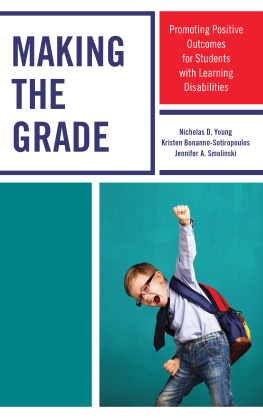
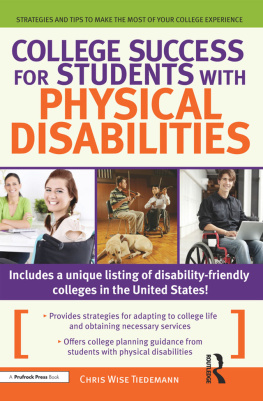
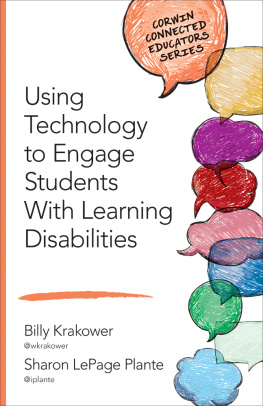
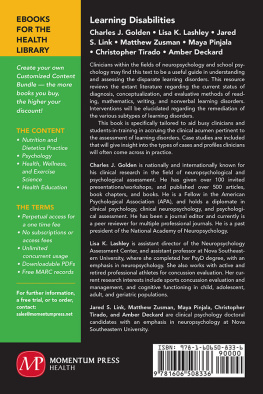
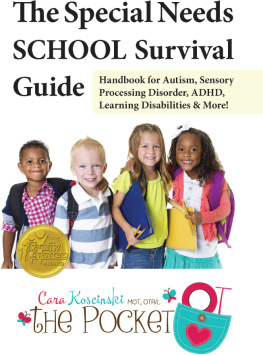
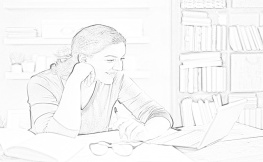
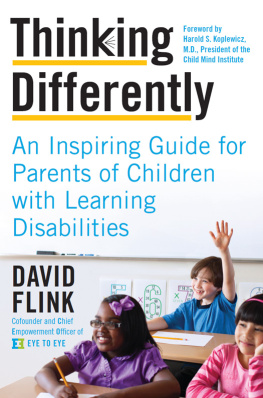

 The paper used in this publication meets the minimum requirements of American National Standard for Information SciencesPermanence of Paper for Printed Library Materials, ANSI/NISO Z39.48-1992. Manufactured in the United States of America.
The paper used in this publication meets the minimum requirements of American National Standard for Information SciencesPermanence of Paper for Printed Library Materials, ANSI/NISO Z39.48-1992. Manufactured in the United States of America.